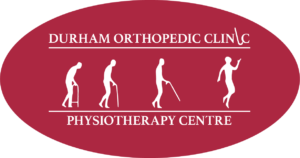Daily activities can often be quite painful and debilitating for those suffering from sciatica.
Symptoms of sciatica include but are not limited to:
- sharp shooting pain in the back of the leg
- the location of the leg pain may change and move from higher up the leg near the buttock region, to down into the lower calf and foot, as a rule, the further down the leg pain is, the more aggravated the nerve is
Sciatica is radiating pain in the leg that originates from the lower back. It follows the pathway of the sciatic nerve as it goes down the leg. The pain is not felt in the front of the leg or into the thigh.
Those living with sciatica usually discover fairly quickly which movements or positions aggravate their leg pain. Often these aggravating symptoms are used to help with the diagnosis.
There are numerous causes for sciatica. Two of the most common causes are:
Discogenic Pain
Discogenic pain is caused by mechanical or chemical irritation from the discs in our spine.
Symptoms include:
- increased pain with coughing or sneezing
- various neurological symptoms including numbness or weakness in the legs
- increased leg pain or low back pain with sitting or bending forward
- standing or walking decrease the symptoms
Stenotic Pain
Stenosis is a degenerative condition and it commonly affects people who are typically 60 or older. It is caused by narrowing of the spinal canal resulting in compression of the sciatic nerve.
Symptoms include:
- increased pain with walking or sitting
- sitting or bending forward usually decreases the leg symptoms
- cramping in the calves with walking, requiring frequent sitting breaks to decrease the pain
- pain or weakness or numbness in the leg, calves, or buttocks
We have listed two of the more common causes of sciatica, but there are many other causes as well. It is important to see a physiotherapist to get a proper diagnosis of the causal factor contributing to your particular sciatica and subsequently gear treatment to your individual diagnosis.
Book an appointment at the Durham Orthopedic and Sports Injury Clinic (905-428-7800) to see one of our registered physiotherapists to help develop a specific plan of treatment for your specific sciatic pain.


